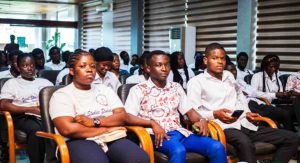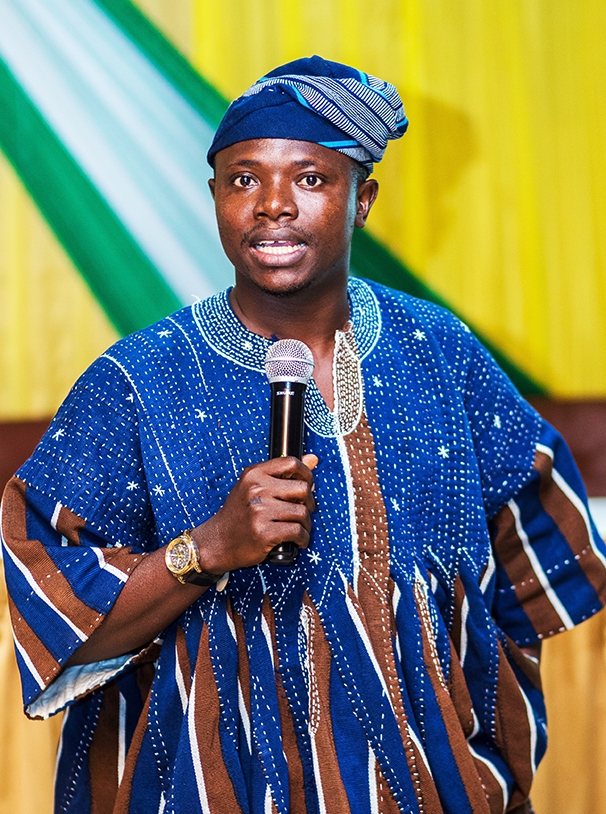Dr. Simon Boateng, a lecturer at the Akenten Appiah-Menka University of Skills Training and Entrepreneurial Development (AAMUSTED), has reminded the youth to take keen interest in climate change and how it is adversely impacting the earth.
The lecturer said those currently involved in activities fuelling climate change may not be alive to endure its devastating effect, but unfortunately, the young generation appear not to be interested in the issue.
According to him, what is more serious is that by the time we get to the peak of the problem, many of the people who are at the forefront of the environmental degradation might not be alive, and the next generation will face the consequences.
Dr. Boateng was speaking to some university students at a climate change sensitisation forum in Kumasi.

The forum was put together by the Students’ Movement for Climate Resilient Environment (SMovCaRE), with funding from the Global Green Grants Fund, and attended by students from AAMUSTED and the Kwame Nkrumah University of Science and Technology (KNUST).
SMovCaRE seeks to mobilize students to embark on a climate change sensitisation campaign with the objective of addressing climate issues through youth advocacy.
Dr. Boateng emphasized the need for active youth involvement in climate actions as the future leaders destined to inherit the consequences of the wanton environmental degradation.
He cautioned the public to take serious note of the extreme weather conditions with increasing natural disasters now three times more common than 50 years ago, according to the United Nations (UN).
According to him, the effects of climate change had resulted in flooding in parts of the country that were not known to be flood-prone areas, adding that even well-planned cities in the western world were struggling to deal with flooding because of climate change.
He noted that carbon dioxide levels are at record highs globally, and for that matter, heading for more than three degrees rise by the end of this century, according to Science Alert.
The lecture observed that increasing the quantum of carbon dioxide, which generates heat, and cutting down trees whose function is to absorb it means the world temperatures would continue to increase.
Mr. Appiah Bosomtwi, an assistant lecturer at KNUST and environmental consultant, reiterated the need for young people to be active participants in climate change conversations and commit to efforts towards combating the global problem.
He stated that the youth should dedicate most of the time they spend on social media to seek information on climate change and advocate behavioural change among their peers and the larger society on the awareness creation of the effects of climate change.
Mr. Bosomtwi urged them to start at the individual level to desist from practices that drove climate change.
He said it was important for the youth’s voices to be heard in pertinent national conversations as they prepared to take over the leadership mantle soon.
He disclosed that plans were underway to organise debates on climate change as part of strategies for awareness creation among young people.
He said the youth were future leaders and must be interested in such issues, hence the need to target them to ensure a sustainable fight against activities driving climate change.








